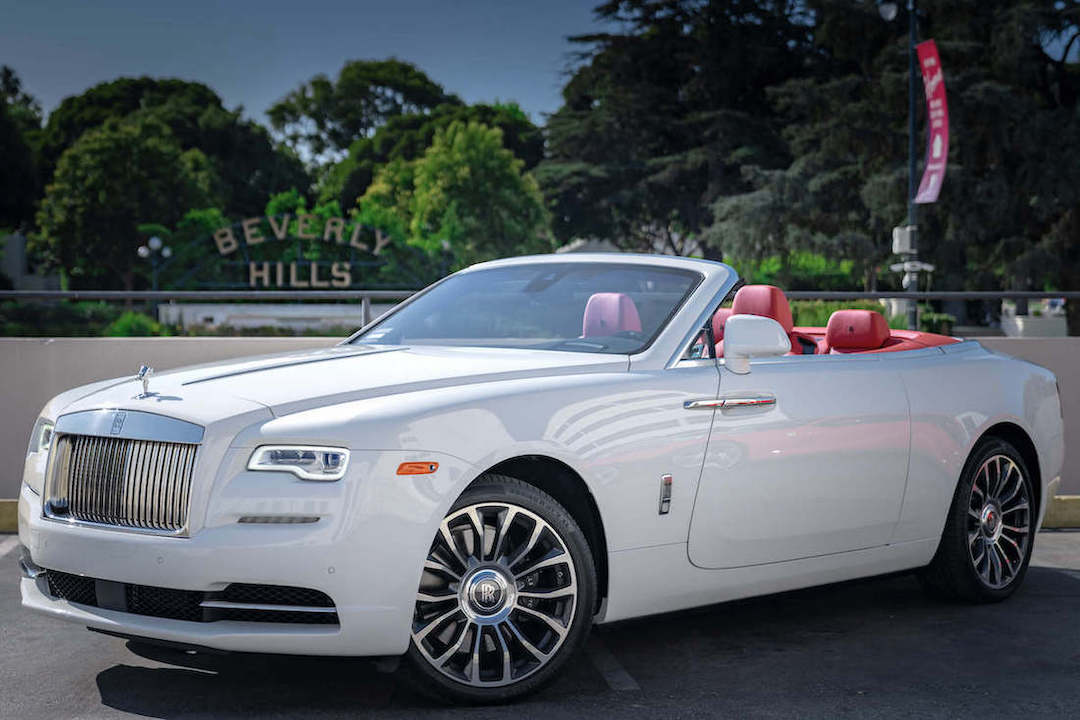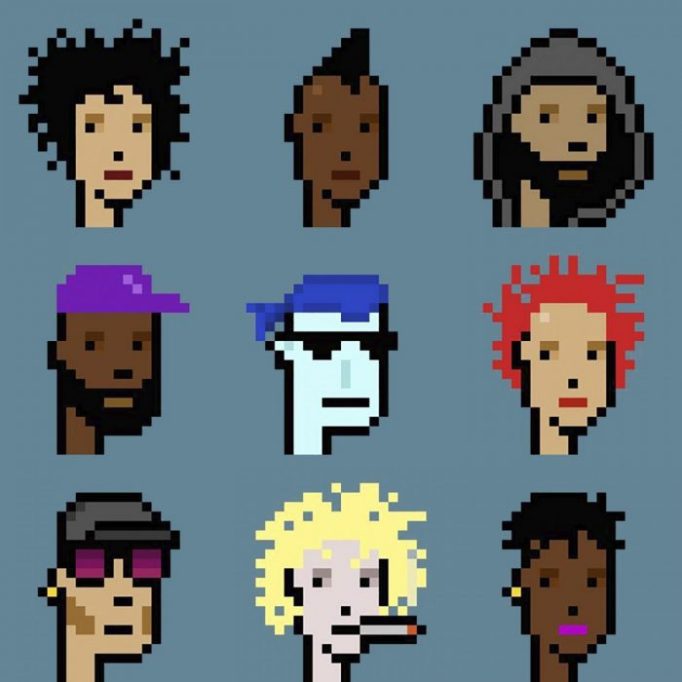
Beware The NFT Crash of 2022
I bought my first cryptocurrency in 2016.
Poured all my savings into Ethereum.
In 8 months, I turned $10k into $250k. I was still living in a studio apt with no dishwasher or AC.
Then, everything crashed.
5 Big Lessons For This 🔥 NFT Market 👇
I bought my first cryptocurrency in 2016.
Poured all my savings into Ethereum.
In 8 months, I turned $10k into $250k. I was still living in a studio apt with no dishwasher or AC.
Then, everything crashed.
5 Big Lessons For This 🔥 NFT Market 👇
*Note: I just aped into NFTs.
I have skin in the game.
I think we have more headroom to go.
But, I also went from pretty broke to "short-term rich" to broke again 5 years ago. And I'm seeing a lot of patterns repeat here.
Let's not make the same mistakes, shall we?
I have skin in the game.
I think we have more headroom to go.
But, I also went from pretty broke to "short-term rich" to broke again 5 years ago. And I'm seeing a lot of patterns repeat here.
Let's not make the same mistakes, shall we?
Lesson #1: Just cuz someone made $$, doesn't mean they're smart.
In 2017, crypto was bananas.
Everyone where you went, "Bitcoin."
Since I was known as a ghostwriter for CEOs, I got invited to a "Crypto Mastermind Dinner" in a $20M home in LA one night.
Looked like this:
In 2017, crypto was bananas.
Everyone where you went, "Bitcoin."
Since I was known as a ghostwriter for CEOs, I got invited to a "Crypto Mastermind Dinner" in a $20M home in LA one night.
Looked like this:

Outside the house was a brand new cocaine-white Rolls Royce.
On the window was a cheap sticker that said, "BUY BITCOIN."
I was randomly seated next to the guy who owned it. He'd just made ~$10M in crypto, and had diamond rings on every other finger.

On the window was a cheap sticker that said, "BUY BITCOIN."
I was randomly seated next to the guy who owned it. He'd just made ~$10M in crypto, and had diamond rings on every other finger.


Dinner started, and we went around sharing our thoughts on the space.
"Monero is going up 10x from here," he said.
A lot of people listened. So did I.
I went home that night and bought Monero.
Of all the altcoins, Monero was hit one of the hardest.
It still hasn't recovered.
"Monero is going up 10x from here," he said.
A lot of people listened. So did I.
I went home that night and bought Monero.
Of all the altcoins, Monero was hit one of the hardest.
It still hasn't recovered.

Lesson #2: Copy-cat projects never work.
In NFTs, everyone and their mother is now copying the "10,000 random character" format CryptoPunks and #BYAC created.
Same happened in 2017.
A gazillion projects raised money aiming to be "the blockchain for X."
99% of them went to 0.

In NFTs, everyone and their mother is now copying the "10,000 random character" format CryptoPunks and #BYAC created.
Same happened in 2017.
A gazillion projects raised money aiming to be "the blockchain for X."
99% of them went to 0.


I worked on one project, in particular, that had some very well-known angels/entrepreneurs involved.
It was raising $30M. From nothing but a whitepaper.
That I wrote.
In 3 weeks.
While in the hospital with shingles (I was working myself to death).
💀💀💀💀💀
It was raising $30M. From nothing but a whitepaper.
That I wrote.
In 3 weeks.
While in the hospital with shingles (I was working myself to death).
💀💀💀💀💀
The project was literally the same thing as every credit card rewards program ever.
They just added the word "blockchain" into all their marketing materials.
I know the guys spent hundreds of thousands $$$ pulling the project together. (I got paid.)
It never launched.
They just added the word "blockchain" into all their marketing materials.
I know the guys spent hundreds of thousands $$$ pulling the project together. (I got paid.)
It never launched.
Lesson #3: If the valet is giving you investment advice, get out.
I seem to remember this same idea being in @morganhousel's book, The Psychology of Money.
I'll never forget going out to dinner in LA one night, early 2018.
I pulled up to the valet.
I seem to remember this same idea being in @morganhousel's book, The Psychology of Money.
I'll never forget going out to dinner in LA one night, early 2018.
I pulled up to the valet.
Bitcoin had just hit a new ATH: $18k.
But it was starting to pull back, and everyone was wondering if they should take profits off the table.
I got out of my car and I asked the valet if they accepted card.
He laughed and said, "Yes—or Bitcoin."
But it was starting to pull back, and everyone was wondering if they should take profits off the table.
I got out of my car and I asked the valet if they accepted card.
He laughed and said, "Yes—or Bitcoin."
When I showed enthusiasm for the newly emerging cryptocurrency, he started telling me I should buy more.
"I bought much as I can," he said, in broken english. "I'll be millionaire!"
I should have gotten out then. We'd hit the top.
Instead, I bought more.
AT DINNER.
"I bought much as I can," he said, in broken english. "I'll be millionaire!"
I should have gotten out then. We'd hit the top.
Instead, I bought more.
AT DINNER.

Lesson #4: Don't play with tax money.
From late 2016 to early 2018, I had watched my bank account balloon.
It was euphoric.
When the market started to pull back in 2018, I couldn't see what was happening.
I was like a gambler, hooked.
I just kept buying more.
From late 2016 to early 2018, I had watched my bank account balloon.
It was euphoric.
When the market started to pull back in 2018, I couldn't see what was happening.
I was like a gambler, hooked.
I just kept buying more.
The whole situation can be summarized by one interaction.
I had my co-founder in town, and we went out to dinner.
Our girlfriends were talking, and I just kept going on and on to him about crypto.
"I'm buying as much as I possibly can," I told him.
He asked:
I had my co-founder in town, and we went out to dinner.
Our girlfriends were talking, and I just kept going on and on to him about crypto.
"I'm buying as much as I possibly can," I told him.
He asked:
"Are you using any of the money you put away for taxes?"
We worked for ourselves, and I had a separate account for taxes with cash in it.
"Yes," I said. "Some. Not all. But some."
I was toeing the line. Pushing the edge.
I was all-in.
We worked for ourselves, and I had a separate account for taxes with cash in it.
"Yes," I said. "Some. Not all. But some."
I was toeing the line. Pushing the edge.
I was all-in.
A year later, crypto had sunk further.
I had to sell a bunch of my Ethereum and Bitcoin at a huge loss to cover the gap in what I owed in taxes.
It sucked.
I realized then how important it is to have cash on hand to PROTECT your investments.
I had to sell a bunch of my Ethereum and Bitcoin at a huge loss to cover the gap in what I owed in taxes.
It sucked.
I realized then how important it is to have cash on hand to PROTECT your investments.
Lesson #5: If you're not a day trader, don't try to day trade.
I had a bunch of friends who got into trading crypto in 2017/2018.
It seemed like the cool thing to do.
Fast-forward, and most of them ended up making less money trading than they did working their jobs.
I had a bunch of friends who got into trading crypto in 2017/2018.
It seemed like the cool thing to do.
Fast-forward, and most of them ended up making less money trading than they did working their jobs.
Meanwhile, I spent most of 2018 and 2019 and early 2020 cutting my expenses.
I didn't buy much more crypto. I already had 90%+ of my net worth in it.
Instead, I started making lifestyle decisions that allowed me to PROTECT my crypto holdings.
I didn't buy much more crypto. I already had 90%+ of my net worth in it.
Instead, I started making lifestyle decisions that allowed me to PROTECT my crypto holdings.
In late 2020, when the crypto markets started to rally back, all that crypto I had been holding for 4+ years exploded.
Life-changing outcome.
If you're not a day-trader, don't day trade it.
Just buy. HODL. And live your life as normal.
Life-changing outcome.
If you're not a day-trader, don't day trade it.
Just buy. HODL. And live your life as normal.
NFTs are going to repeat this same cycle.
I guarantee it.
People are over-paying MASSIVELY for JPGs right now.
And they're going to keep massively over-paying.
Some will make boatloads of money (and talk about it on Twitter).
Most will go broke.
I guarantee it.
People are over-paying MASSIVELY for JPGs right now.
And they're going to keep massively over-paying.
Some will make boatloads of money (and talk about it on Twitter).
Most will go broke.
If you HODL your JPGs long enough, some might rally back 3-7 years from now and you'll turn a profit.
Most people don't have that level of patience (or conviction). They'll sell for a loss.
This is how the game works.
So, have fun with NFTs now.
But know the crash is coming.
Most people don't have that level of patience (or conviction). They'll sell for a loss.
This is how the game works.
So, have fun with NFTs now.
But know the crash is coming.

• • •
Missing some Tweet in this thread? You can try to
force a refresh











